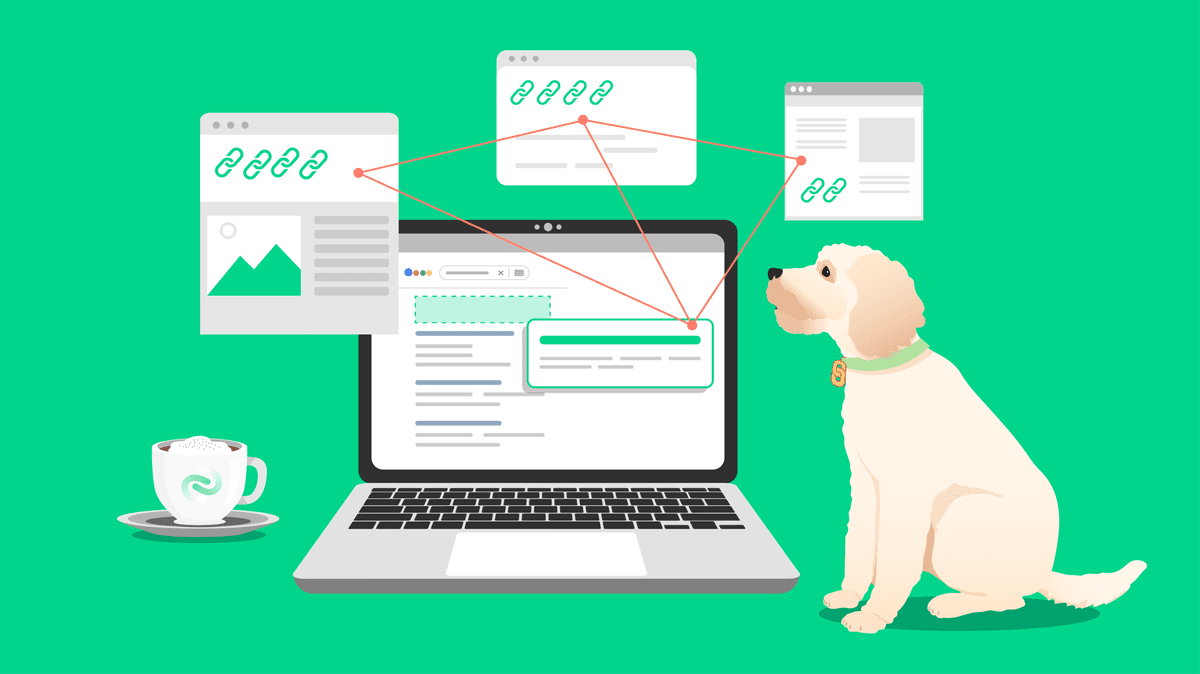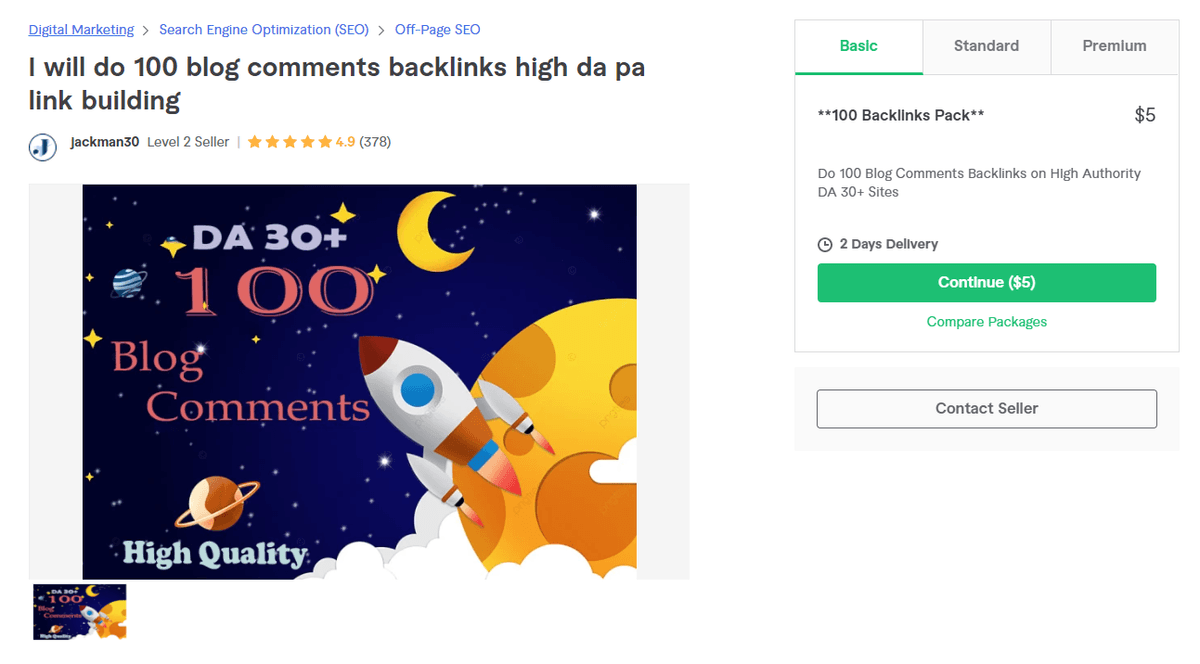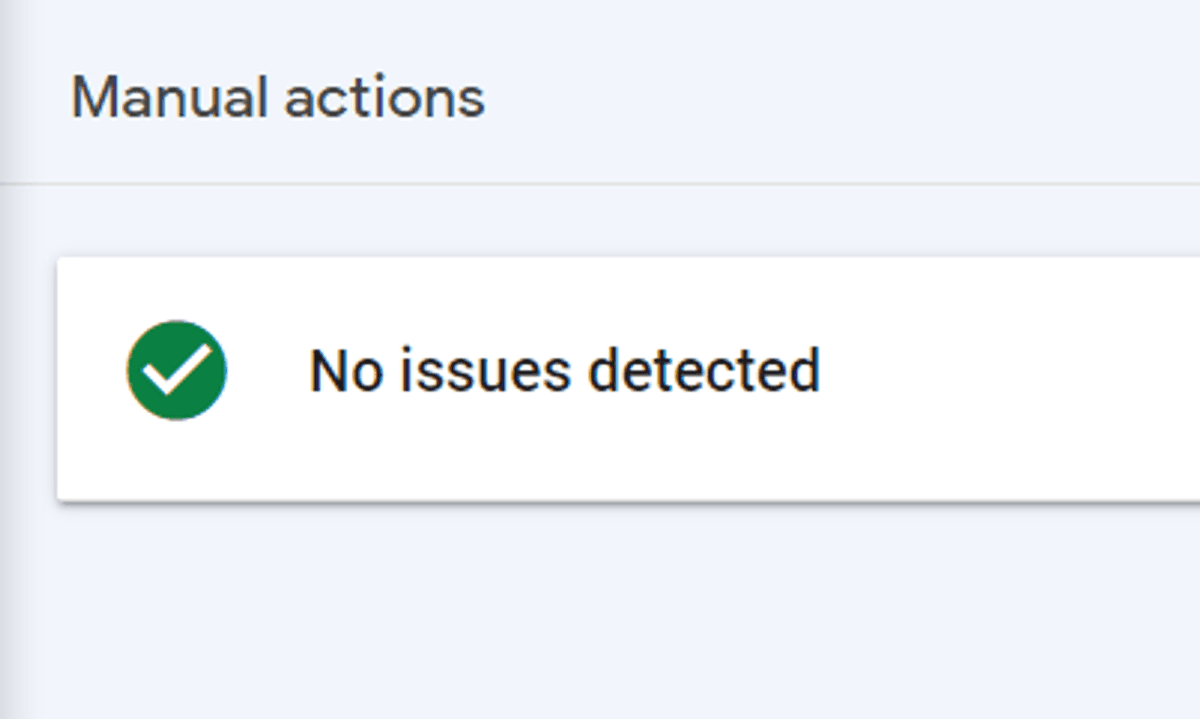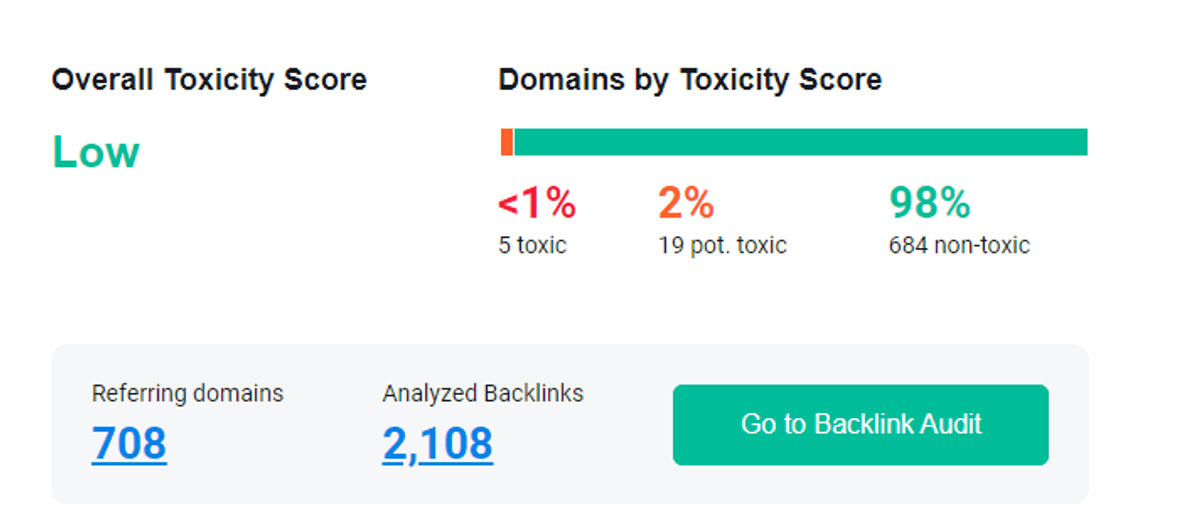
Black Hat Link Building Explained (And why you should avoid it)

Stewart
Chief Link Building Strategist
Building high-quality links takes time and effort. If you’re short on either of these factors, then black hat link building strategies promise to be an easy way to generate a high volume of links.
This spammy black hat SEO technique can lead to a whole host of problems for your website, which we will analyze in this article.
Key Takeaways
Black hat links are those built in ways that break Google’s guidelines.
You should avoid black hat strategies as they can result in algorithm or manual penalties.
Most black hat Search Engine Optimization (SEO) techniques aren't illegal, but they can result in search penalties.
Black hat link building tactics include blog commenting, user-generated content spam, and even hacking.
What Are Black Hat Links?
Black hat links are links built in ways that go against Google Search guidelines. These links are designed to game the Google algorithm and push a site higher up the search results than it would otherwise be.
People generate black hat links in many ways. Some of these links are built using automated programs that create a large number of referrals in a short period. Other people use PBNs or link farms to build quick and easy links.
While each black hat link building strategy is different, they all have one thing in common: they allow website owners to generate a large number of links in a short time period.
Black Hat SEO Is the Alternative to Gray or White Hat SEO
Black hat link building is the alternative to using white or gray hat strategies.
White hat links are built in ways that completely adhere to Google guidelines. These links have a high value and come with a low chance of a rankings penalty.
An example of a white hat link is when a website links to your content organically. It’s white hat because the website owner found your content, liked it, and shared it in their article.
Gray hat links are those in the area between black hat and white hat. They typically use elements of both white and black hat techniques.
Link exchanges—which is when two sites agree to link to each other—are a common gray hat link building practice.
It’s gray hat because websites often link to each other and it can be done in a way that benefits the reader.
Despite this, these links aren’t organic and they can artificially impact a site’s Google rankings.
The Problem with Black Hat Links
Black hat links can harm your website’s rankings.

If Google thinks you are building spam links, a Search evaluator will look at your link profile and give your website a manual action.
The severity of a manual action varies, but at its worst it results in your website being entirely deindexed from Google.
Manual actions aren’t the only way that search engines punish black hat link builders. The algorithm is increasingly adept at spotting and ignoring black hat links.
If the Google algorithm recognizes the link, the time and money you put into building these black hat links go to waste.
Even if the Google algorithm doesn’t spot the links right away, it will eventually. And when it does it will neutralize the links, causing your rankings to decrease.
Is Black Hat SEO Illegal? 👮
Most black hat SEO tactics are not illegal. They are against Google’s rules and can result in a search engine penalty, but nothing more.
Some types of black hat SEO could be illegal. For example, if you hacked into a website and added links to your own site.
Why Do People Build Black Hat Links?
People typically build black hat links for three reasons:
They can be effective in the short term
They are an easy way for spam link builders to generate links for clients
They are unaware that the link is black hat
Let’s look at each of these points in further detail.
1) Black Hat Links Can Have a Short-Term Benefit
Some forms of black hat link building can work until search engines discover and neutralize the links.
Building links with Private Blog Networks (PBNs) is the most common form of potentially effective black hat SEO.
PBNs are networks of websites that are built for the sole purpose of linking to another site and pushing it up the rankings.
Black hat link builders create these networks by buying old domains with high domain authority. They quickly create websites on these domains, often using cheap or AI-generated content.
The Google algorithm is typically good at spotting PBNs, so black hat link builders use techniques such as hosting the sites on different servers to hide the relationship.
The issue is that you are always at risk of search engines spotting the website and neutralizing the links. When this happens, your rankings may drop significantly.
2) They Are an Easy Way for Bad Link Builders to Generate Links
Many people don’t know how to build links, so they contract other companies to do it for them.
But not all services are equal. And cheap link builders often use black hat link building techniques like placing links on PBNs.
They do this because it is a quick and easy way to generate links for clients. They can forgo the difficult and expensive parts of link building, such as outreach and content creation, and instead place links on sites they own.
If the client is inexperienced with SEO, they won’t know they are paying for black hat links. They’ll just see the links and assume that the service is working.
How to Spot Spam Link Building Services 🕵️
There are several signs you can use to spot a low-quality link building service. Here are some of them:
⚡Fast turnaround time: Proper link building takes time. You have to reach out to websites, create content, and get through the site’s editorial process. Fast turnaround time suggests the site is placing links on a PBN.
🤝Guaranteed links: There is never a guarantee that a real website will link to another site. If the service offers guaranteed placement on particular sites it is a black hat link builder.
💰 Low cost: Building links is labor-intensive. If the price is too low, it suggests the service is cutting corners. This could mean it is building black hat links.
Read this article for more on how to outsource link building.
3) They Don’t Know How to Spot Black Hat Links
Sometimes people are simply unaware they are generating toxic links. Not everyone who runs a website is knowledgeable about SEO, which makes it easy for them to build the wrong types of links.
This is made worse by the fact that black hat link sellers are everywhere. You see them on freelance marketplaces, SEO forums, Google Search results, and even in your email inbox.
At LinkBuilder we often receive outreach emails from spammy link building services promising authoritative links at low prices. While we know that these websites are link farms, other people may not.
Negative SEO Attacks: The Other Reason You Might Have Black Hat Links
Sometimes websites have black hat links because they have been the target of a negative SEO attack.
This is when a black hat SEO specialist points low-quality links towards a website in an effort to kill its search engine rankings.
The idea is that by reducing the Google Search rankings of a competitor, websites belonging to the black hat SEO have a greater chance of ranking.
Nowadays, search engines are good at spotting negative SEO attacks, so these attacks aren’t as effective as they once were.
Most Websites Have Some Low-Quality Links
Most websites pick up some low-quality links. These links aren’t necessarily black hat, but they can appear similar to black hat links when you assess your backlink profile. In most cases, you don’t need to worry if you have some spammy-looking links, as Google is now very competent at simply ignoring these links.
6 Black Hat Link Building Techniques to Avoid
Here are some of the most common black hat link building techniques you are likely to come across.
1) Using Private Blog Networks (PBNs)
PBNs are networks of websites that exist solely to link to other sites and boost their rankings.
This is one of the more common black hat SEO tactics and when done well it can still have some impact, at least until search engines discover the network.

The way it works is that black hat SEOs buy expired domains with existing website authority. They then recreate these domains and the content. They can use redirects to ensure that the domain doesn’t lose any link juice.
Website owners typically build out these sites using content farms or AI-generated content. This lets them fill out their websites with original content quickly and at low cost, making the sites appear real to Google.
Most people who own PBNs use techniques to hide them. The owners may block crawlers from popular SEO tools so competitors can’t see the websites. They may also host the sites on different plans to hide the connection from Google.
2) Buying Links on Link Farms
Link farms are websites that exist solely to link to other sites. The owner of the link farm earns money by selling links on the website.
These websites are often part of a PBN that Google has discovered. The person running the PBN knows that these links no longer benefit their sites, so they monetize them by selling links instead.
The penalty for using link farm links isn’t usually that high. The Google algorithm knows about these sites, so it simply neutralizes any links coming from them. But, you could receive a manual penalty if you have too many of these links.
3) Using Automated Blog Comments
You can earn links from blogs by leaving comments on posts with a link to your site - It's a classic method of pillow link building.
Blog comment links are almost always nofollow, which means they pass no value or link juice. At its best, commenting is an ineffective form of link building that can generate some referral traffic.
Blog commenting on its own isn’t black hat. There’s nothing wrong with commenting on blogs you follow and adding relevant links. But using automated programs to generate thousands of comments is against Google’s guidelines.
This strategy uses bots to automatically drop comments and links on websites. It can result in a large number of ineffective links.
You can find services offering this type of link building on freelance marketplace websites like Fiverr.

4) Adding Links to Plug-ins or Themes
This is a form of link building where the person who wants to build links creates a plug-in or theme that website owners can install on their sites.
The person then adds a link to their site in the plug-in’s code. Anytime someone installs the plug-in, they will automatically link back to the target website. If the plug-in is successful, this can result in a high volume of links.
Sometimes the person will speed up the process by taking over a plug-in that already has many installs.
5) Hacking Websites to Add Links
One of the most extreme forms of black hat link building is when people hack into other websites and add links to the existing content.
Hackers typically target old posts on blogs with vulnerabilities because it's unlikely that the owner will check these pages. The links stay in the content until someone finds them.
In one high-profile example hackers broke into Still Being Molly, a site about fashion and lifestyle. At the time of the attack, the site was 12 years old and had 2,000 pieces of content.
Hackers added links to 500 posts. Some of the links were NSFW. The site owner only noticed the links when they went to update their old content.
It’s easy to see why hacking is an attractive proposition for black hat SEOs. Once they’ve broken into the website, they can add an almost unlimited number of links and they have complete control over factors like anchor text and the pages they add the links to.
If they are careful with how they do it, it’s hard for webmasters to find the links. And if the sites the hackers break into are high quality, the links can be effective.
Worried about Hacked Links? Here’s How to Secure Your Website
Some steps you can take to increase the security of your website include:
Change your admin username
Enforce strong passwords for all users
Use two-factor authentication
Change your login page from the WordPress default
Use a firewall to block malicious bots
Limit how many times someone can try to log into your website to stop brute force attacks
Update all themes and plug-ins
Remove plug-ins you don’t use
6) Adding Links to User-Generated Spam
Blog commenting isn’t the only form of user-generated content that can be abused by black hat SEOs.
People who want to generate links to their website also use forums, directories, social media platforms, communities, and blogging sites.
Typically this spam content will be super low quality. It may be automatically generated using AI content generators. It will also be full of links with keyword match anchor text pointing to pages that are barely relevant on the website.
The majority of links in user-generated content are nofollow. This means that they aren't even an effective way to pass on link juice.
Having these kinds of links pointing to your website isn’t necessarily a problem when done sparingly and in a way that benefits the reader. But it becomes problematic when people spam these sites with low-quality content to generate hundreds of links back to their domains.
Is Buying Links Black Hat? 🎩
Technically, buying links is a black hat SEO strategy. Google clearly states that “buying or selling links that pass PageRank” is a link scheme and can thus result in a Google penalty.
However, buying links is incredibly common and if done right, it's hard to detect and can be very beneficial provided you partner with high-quality sites that are relevant in your niche. Because of this, many people choose to buy links to their website.
If you go down this route, make sure you know what you are doing and never buy links on PBNs or link farms.
Nowadays, most website owners and bloggers know they can earn a solid revenue by selling links to the right partners, and therefore if you're not willing to pay to play, then you may be at a massive disadvantage.
How to Spot Black Hat Links?
If you’re worried that your website might have black hat links, you’ll want to discover and remove them.
Most webmasters know if they have built black hat links. But you may also have them if:
You bought a website previously run by someone else
You hired someone to build links for you
You have suffered from a negative SEO attack
Here are the steps you can take to find the links.
1) Check Search Console for Manual Actions
Manual actions are penalties applied to your site by Google Search evaluators. They negatively impact your rankings and can even see your site de-indexed from Google.
You may have a manual action if a large number of black hat links point to your website.
You can check for manual actions in Google Search Console. Click “Manual Actions” within the “Security and Manual Actions” tab. If your site has any issues, you will see them here. If it doesn’t, you’ll see a message like the one in the image below.

If you do have an issue, Google will tell you what the problem is and provide advice about how to fix it. You’ll see a description of the issue and the pages that are affected. This could be individual pages, a subset of pages, or your entire site.
You can then take steps to audit your site’s links and remove any bad ones. Once removed, you can ask Google to review the links—if the evaluator is happy, they will remove the penalty.
Google says recovering from a manual penalty can take from days to weeks. However, it can take longer in some circumstances.
2) Perform a Backlink Audit
If you have a manual action, you need to take steps to identify and remove the problematic links. You should also do this if you are worried your site has links that could cause a penalty.
The first step is to run a comprehensive backlink audit. This is when you generate a list of all the links on your website and check their quality.
The easiest way to do this is to use an SEO tool with a backlink audit feature.
SEMRush has a good one that scans your links and then highlights any it thinks come from toxic domains.

Look for Signs of Black Hat Links
Now you have a list of all your links, it’s time to identify the problematic ones.
The first thing to check is the domains that link to you. If any of them look suspicious, head to the page and check out the content.
Signs of a spammy website include:
Low-quality content and articles on a wide variety of unrelated topics
Suspicious external links with exact match keyword text
No information about who runs the website
If you aren’t sure about a site you can use an SEO tool to get further information. Check information like the search engine traffic the site receives, or the keywords it ranks for.
If the site gets little traffic from search engines or if it ranks for spammy keywords like those in adult or casino niches, it is likely to be a low-quality domain.
You can also check the anchor text of your links. Look out for:
Exact keyword match anchor text: This suggests the link is over-optimized and can be a sign of paid links. Look at the website and the article to confirm.
NSFW anchor text: Assuming your site isn’t NSFW, anchor text about adult topics is a sign of a negative SEO attack. Also, look for anchor text on topics like casinos or pharmaceuticals.
Foreign language anchor text: This can be a sign of black hat links. Just check the webpage to see if it is a legitimate site.
This article contains more information about how to spot spammy websites.
Removing Black Hat Links
The final step is to remove or disavow the links. You can remove links by contacting the website in question and asking them to take down the link.
Or you can create a disavow file and then upload it to Google Search Console. This is a list of all the websites you want Google to ignore links from.
Once uploaded, the search engine will tell its crawlers to ignore these links entirely, making it a very appealing option rather than individually asking sites to remove links!
Let the Experts Take Care of Your Link Building
Ultimately, you want to avoid black hat link building at all costs, especially if you have a long-term mindset of consistently growing your SEO traffic over time without penalty.
At LinkBuilder, we generate high-quality links for leading clients in a range of industries. Our processes are super transparent, so you know we will never build links that will harm your website. Find out more by checking out our case studies or by contacting us.
